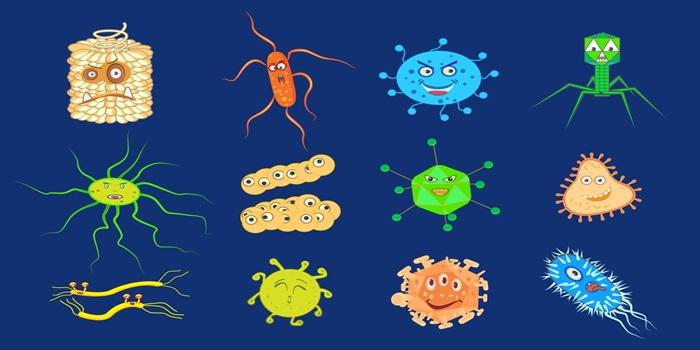What is Gut Microbiome? It’s Impact on Overall Health!

June 24, 2025 by Robert Dowling | Fact Checked by Karen | Medically Reviewed by Dr. Bruce
The gut-brain link is undoubtedly familiar to you. But as recent studies have shown, your entire body can be affected by your gut health. The main “portal” for nutrition intake and processing is the gastrointestinal or digestive system, which also acts as a disease-fighting organ and a hub for communication. Your immune system, nervous system, mental health, and digestive system are all impacted by a healthy gut. Overall gut health is correlated with overall well-being, bone and skin health, and the ability to fight off diseases.
What Is the Gut Microbiome?
Microorganisms, often known as microbes, are small living organisms such as bacteria, viruses, fungi, and others. These bacteria, which number in the trillions, are mostly found on your skin and in your intestines.
The majority of the microorganisms in your digestive system are known as the gut microbiome, and they are located in cecum situated inside your intestine. Although your body contains a wide variety of germs, bacteria have received the most research.
Your body actually contains more bacteria than human cells. Your body has just thirty trillion human cells, compared to about 40 trillion bacterial cells. It implies that you are not so much human as bacterium.
Furthermore, the gut microbiome contains up to 1,000 different kinds of bacteria, each of which has a unique function in your body. Some of these may lead to illness, but the majority are vital to your well-being.
These microorganisms could weigh anywhere between two and five pounds in total—about the same as your brain. When combined, they act as an additional organ in the human body and are vital to your overall well-being.
Here’s How Gut Bacteria Impacts Your Health
Obesity and diabetes
The body’s metabolism is influenced by gut flora, and obesity and diabetes risk may rise when gut flora levels are out of equilibrium. Researchers are looking at the role that gastrointestinal signals play in metabolism and the development of diseases like Type 2 diabetes.
Related: 10 Best supplements for diabetes
Digestive health
Numerous microorganisms in your digestive system are beneficial bacteria that support healthy digestion, vitamin absorption, and other processes. However, a number of gastrointestinal problems can arise when the microbes in your stomach are out of equilibrium. Among these conditions include Crohn’s disease and irritable bowel syndrome.
Related: Best digestive enzyme supplements
Brain health
Because of the close connection between the cognitive system and the gut, stress can make some individuals feel unpleasant to their stomachs. There is continual communication between the gut and the brain. Therefore, problems with your digestive system or gut flora may make stress, anxiety, or depression worse. Digestion problems, however, can also result from these kinds of situations. According to some researchers, gut health affects mood, behavior, and chronic pain. For this reason, some experts refer to your gut as your second brain.
Skin diseases
The microbiota of the skin and the gut are linked. Poor gut health is typically the cause of many ailments. Certain dietary practices, such as consuming more sugar, red meat, alcohol, and unhealthy fats, can directly cause certain disorders, such as rosacea, acne, and dandruff. While leaky gut is the cause of several other disorders. For instance, dermatitis herpetiformis, psoriasis, atopic dermatitis, and gluten sensitivity.
The immune system
The gut aids in the development and augmentation of the body’s immune system as well as infection prevention by interacting with immune system cells. According to a study, a baby’s immunity may be impacted by the different gut flora that arise from breastfeeding versus formula-fed babies. Babies that are breastfed may be more resilient to some illnesses and have a healthy gut microbiome. Researchers think there may be a connection between a healthy baby’s gut flora and their subsequent resistance to conditions like diabetes and obesity.
Related: Fitspresso reviews and scam complaints
Heart health
Red meat and eggs are particularly unhealthy for our digestive tracts, according to research. The food choline is transformed by certain gut bacteria into the hazardous compound trimethylamine N-oxide (TMAO). Regrettably, high TMAO levels can raise the risk of blood clots, stroke, high blood pressure, and other illnesses.
Bone health
A common theory is that aberrant bacteria found in the stomach cause chronic inflammatory disorders. This frequently causes the body to become more inflammatory, making one more vulnerable to developing rheumatoid arthritis and osteoporosis, a condition marked by reduced bone density. Probiotics have been shown in ongoing studies to improve calcium absorption and support the growth of bone-forming cells.
Tips to Improve Your Gut Microbiome
Your gut microbiota can be improved in a variety of ways, such as:
Eat varied range of foods: Consume a variety of meals since doing so can result in a varied microbiome, that is a sign of healthy gut flora. Legumes, beans, and fruit in particular are high in fiber and can encourage the growth of beneficial Bifidobacteria.
Restrict artificial sweeteners: Reduce the amount of artificial sweeteners you consume. Research suggests that aspartame and other artificial sweeteners raise blood sugar levels by encouraging the growth of harmful microbes in the gut flora.
Consume foods high in probiotics: Probiotics are a kind of fiber that promotes the development of beneficial microorganisms. Apples, bananas, asparagus, oats, and artichokes are among the foods high in probiotics.
Consume whole grains: They help with weight, cancer risk, diabetes, and other conditions because they are high in fiber and good carbohydrates like beta-glucan, that are broken down by gut bacteria.
Consume fermented foods: Foods like kefir, sauerkraut, and yogurt all include Lactobacilli, which are beneficial bacteria that help lower the number of pathogenic species in the intestine.
Try eating a plant-based diet: Plant-based diets may help lower cholesterol and inflammatory levels, as well as microorganisms that cause disease like E. coli.
Consume polyphenol rich foods: Plant components called polyphenols can be found in whole grains, olive oil, green tea, and dark chocolate. The microbiome breaks them down to promote the growth of beneficial microorganisms.
Take an oral probiotic supplement: After dysbiosis, probiotics, which are living bacteria, can aid in reestablishing the gut’s natural balance. They “reseed” it with beneficial bacteria to do this.
Probiotics and Prebiotics For Gut Health
Probiotic and prebiotic consumption has been shown to dramatically improve gut health, which in turn supports mental wellness. Live beneficial bacteria, or probiotics, are present in fermented foods such as kimchi, sauerkraut, and yogurt.
Because they produce substances that promote health and outcompete bad bacteria, these microorganisms help maintain a healthy gut environment. Conversely, prebiotics are fibers that nourish these good microorganisms. Whole grains, onions, garlic, and bananas are foods high in prebiotics.
By adding a variety of foods high in probiotics and prebiotics to your diet, you can strengthen your gut microbiota, which may enhance your mood and cognitive abilities. For example, studies have demonstrated that specific probiotics help reduce anxiety and depression symptoms. Maintaining a healthy microbiota can help us become more resilient in terms of mental health.
Related: 7 Top rated probiotic supplements
Concluding Remark
Trillions of different bacteria, fungus, and other microorganisms make up your gut microbiome. The gut microbiome regulates digestion, strengthens the immune system, and supports numerous other elements of health, all of which have a significant positive impact on your overall health.
Weight gain, high cholesterol, excessive blood sugar, and other conditions might be impacted by an unbalanced population of beneficial and harmful bacteria in the intestines.
Eat a wide range of vegetables, fruits, whole grains, and fermented foods to promote the growth of beneficial bacteria in your digestive system.






